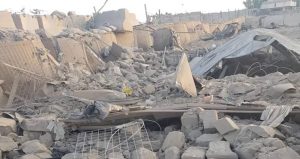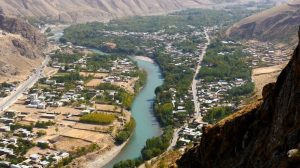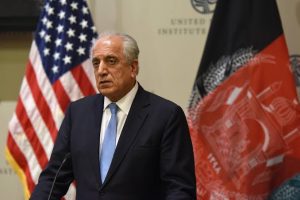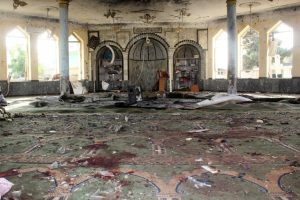Saudi Arabia And United Arab Emirates: A Bitter Rivalry Over Yemen

 KABUL: (Middle East Press) The precarious situation between Kingdom of Saudi Arabia and its neighbors, namely UAE, deteriorated recently over sharing the power and influence in Yemen—the most impoverished Arab nation— as [Persian] Gulf Cooperation Council countries and Emirati forces in particular intervened directly to support militias loyal to ex-President Abd Rabbuh Mansur Hadi which in return rendered the Yemeni crisis a ground for intense rivalry between Riyadh and Abu Dhabi.
KABUL: (Middle East Press) The precarious situation between Kingdom of Saudi Arabia and its neighbors, namely UAE, deteriorated recently over sharing the power and influence in Yemen—the most impoverished Arab nation— as [Persian] Gulf Cooperation Council countries and Emirati forces in particular intervened directly to support militias loyal to ex-President Abd Rabbuh Mansur Hadi which in return rendered the Yemeni crisis a ground for intense rivalry between Riyadh and Abu Dhabi.
According to Alquds Alarabi –an independent pan-Arab daily newspaper—the deleterious rift between UAE and KSA has impeded the advancing pro-Hadi militias Taiz, Yemen’s third largest city.
In the meantime, al-Khaleej Affairs magazine which is close to Saudi Arabia has accused Abu Dhabi of exploiting the so-called military achievements attained by ‘Yemeni popular resistance’ in southern cities and deliberately delaying the campaign to ‘liberate’ the capital city of Sana’a.
The Saudi-Emirati simmering conflict might erupt into a full-fledged military confrontations as there are myriad of reports say about ‘anonymous’ air strikes targeting pro-Saudi al-Herak al-Janoubi militias in Aden and Abyan . The Yemeni officials attribute these attacks to Emirati warplanes in an attempt to cleanse areas considered to be Emirate’s sphere of influence, marking a new turbulent chapter in Saudi-Emirati relations.
A Reluctant Partner
According to many Middle-East observers, Abu Dhabi was indeed unwilling to take part in the Saudi-led Operation ‘Decisive Storm’ from the very first place despite the fact that it participated with 30 fighter jets which rendered UAE the second largest Air Force within the Saudi-led war on Yemen, though Emirati leaders didn’t wish to see a significant Saudi military success as the British columnist David Hearst described in an article published in Middle East Eye as an acrimonious completion between Riyadh and Abu Dhabi is raging for the leadership of ‘Arab Sunni world’.
Mr. Hearst believes UAE seeks to scuttle the Saudi-orchestrated transition of power in Yemen and prevent the ex-President Hadi to return to the power as the majority of his cabinet constitutes from al-Islah party—Yemen’s Muslim Brotherhood branch and UAE’s arch-enemy— through supporting its candidate who is Ahmed Ali Saleh — the eldest son of former Yemeni president Ali Abdullah Saleh, an ex-commander of the Republican Guard unit and Yemen’s ambassador to Abu Dhabi.
Some political analysts even speculated that Abu Dhabi’s Crown Prince Sheikh Mohammed bin Zayed has virtually informed Yemen’s former president and his son about the details and exact date of Saudi Arabia’s military campaign which led to save his life as Ali Abdullah Saleh’s mansion was severely targeted by Saudi Air Force.
Emirati officials also openly questioned the possibility of a Saudi military Success in Yemen as the advisor to the Abu Dhabi’s Crown Prince, Mr. Abdul Khaleq Abdullahtold Reuters that the ‘Decisive Storm’ is nothing but a Saudi adventure.
What are the roots of the Saudi-Emirati Conflict?
Yemen’s geostrategic location: Yemen holds a unique maritime position due to the fact it controls the narrow Bab el-Mandeb passage in the Red Sea and also has spectacular position in the Indian Ocean; hence a Saudi takeover in Yemen will definitely augment the Saudi influence among the Arab Gulf countries which in turn would curtail the Emirati role.
Competition for leadership of ‘Sunni world’: it is now tangible that UAE vies to lead the ‘Sunni world’ as it consider itself qualified to compete with its traditional rival ,Saudi Arabia, and Erdoğan’s Turkey which seeks to re-establish the Ottoman Empire in the volatile Middle-East region.
The old animosity toward the Muslim Brotherhood: the Emirati officials loathe the growing influence of Muslim Brotherhood in Yemen and regarded it as serious national threat especially after King Salam of Saudi Arabia ascended to the power and looked for a rapprochement with Muslim Brotherhood.
Fears over the ‘al- Noor City’ project: it is a joint project to connect Djibouti to Yemen with a bridge across the Red Sea creating a commercial corridor with global significance. The Emirati officials fear that such a project might eclipse the vital role of Dubai as the commercial hub in the Middle-East.
Saudi ambitions over the Yemeni oil fields: Riyadh seeks to tighten its iron grip on al-Wa’ed oil field which extends across al-Jawf Governorate and also will give Saudi Arabia an alternative route instead of perilous Strait of Hormuz which is under Iranian influence.
Conclusion:
In summary it can be said that today’s conflict within the alliance of aggressor forces in Yemen should not mislead us, for it is a natural consequence of an alliance based on plundering Yemen’s resources, derailing its revolution and subjugating an entire nation, thus using al-Qaeda card and other terrorist organizations to wield influence in Yemen won’t result in stability and security neither in Yemen nor in its neighboring countries. This war and serious damages inflicted on Yemeni society and economy shall unify the Yemeni nation from every hue and heft, southerners and northerners, and would galvanize Yemenis to preserve their country’s sovereignty and dignity.





